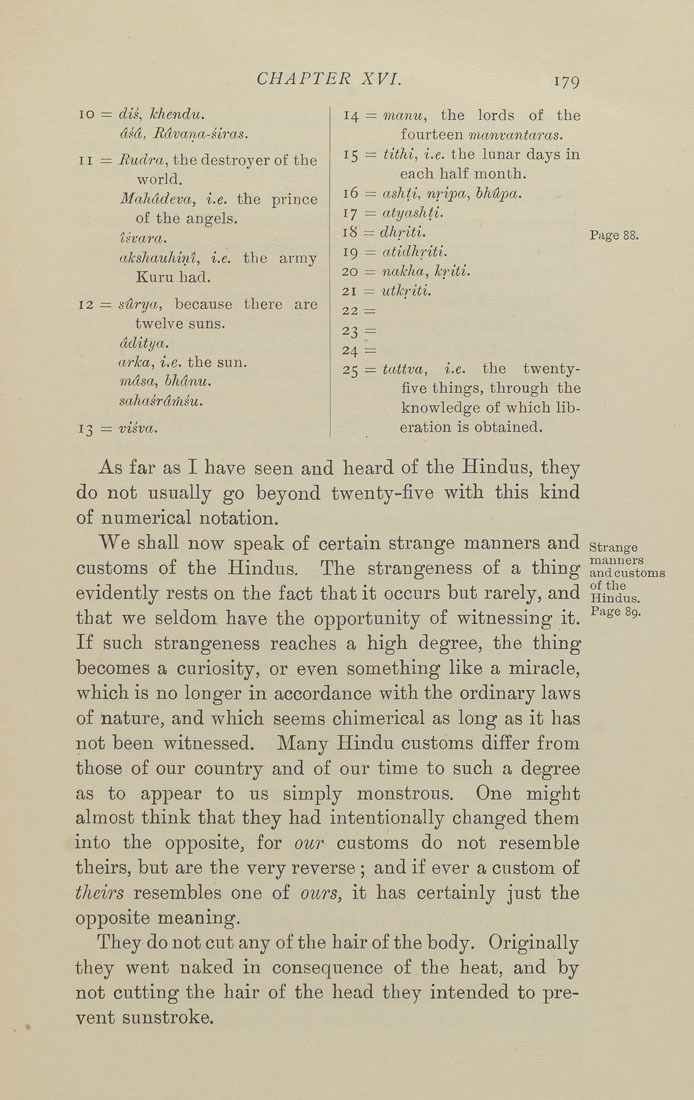Bīrūnī, Muḥammad ibn Aḥmad, Alberuni's India (v. 1)
(London : Kegan Paul, Trench, Trübner & Co., 1910.)
|
||
|
|
|
|
| Page 179 |

CHAPTER XVI. 179 10 = dis, khendu. did, Rdvana-slras. 11= Rudra, the destroyer of the world. Mahddeva, i.e. the prince of the angels. tsvara. akshauhint, i.e. the army Kuru had. 12 = surya, because there are twelve suns. aditya. arka, i.e. the sun. rndsa, hhdnu. sahasrdmsu. 13 = visva. 14 = manu, the lords of the fourteen manvantaras. 15 1= tithi, i.e. the lunar days in each half month. 16 = ashti, nripa, hhupa. 17 — aty ashti. 18 = dhriti. 19 = atidhriti. 20 = nakha, kriti. 21 = utkriti. 23 24 25 tattva, i.e. the twenty- five things, through the knowledge of which lib¬ eration is obtained. As far as I have seen and heard of the Hindus, they do not usually go beyond twenty-five with this kind of numerical notation. We shall now speak of certain strange manners and strang-e customs of the Hindus. The strangeness of a thing andTuTtoms evidently rests on the fact that it occurs but rarely, and mndus. that we seldom have the opportunity of witnessing it. ^^^^^^s- If such strangeness reaches a high degree, the thing becomes a curiosity, or even something like a miracle, which is no longer in accordance with the ordinary laws of nature, and which seems chimerical as long as it has not been witnessed. Many Hindu customs differ from those of our country and of our time to such a degree as to appear to us simply monstrous. One might almost think that they had intentionally changed them into the opposite, for our customs do not resemble theirs, but are the very reverse; and if ever a custom of theirs resembles one of ours, it has certainly just the opposite meaning. They do not cut any of the hair of the body. Originally they went naked in consequence of the heat, and by not cutting the hair of the head they intended to pre¬ vent sunstroke. |
| Page 179 |







